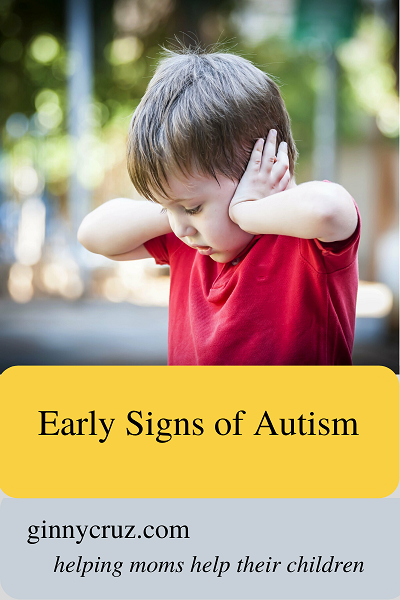Early Signs of Autism
Autism is a developmental disorder of varying severity. It is characterized by difficulties with social interaction and communication and by restricted or repetitive patterns of thoughts or behaviors. There are developmental disorders that can look like autism but are not.
It is important to know that not all children who have autism will demonstrate all of these signs. Some children will have mild symptoms and others will have more severe involvement. It is also extremely important to state that while the following lists of signs can be indicative of autism, they are not always.
Many parents do not realize anything is wrong until they compare their child’s abilities with those of other children. Keeping up with important markers of development is one of the best ways to help your child.
Catching problems early and seeking help is vital to your child’s success. CLICK HERE to receive a FREE milestone chart to help you know how your child’s development is progressing.
If your child demonstrates any of the problems listed below, consult your child’s doctor. Further testing must be completed to determine if your child has autism or something else. Even if they do not have autism, these problems should still be investigated and services put in place to help your child move forward.
By 6 months:
- few or no big smiles and no warm, engaging interactions
- little to no eye contact
By 9 months:
- little or no back-and-forth sharing of sounds, facial expressions, or smiles
By 12 months:
- little to no babbling
- little to no back-and-forth gestures, such as pointing, reaching, showing, or waving
- rarely or never responds when called by name
By 16 months:
- very few if any true words
By 24 months:
- few or no meaningful two-word phrases (does not include repeating the same words twice, such as mama mama)
At any age:
- resistance to minor changes in surroundings or routine
- persistent preference for being alone
- avoidance of direct eye contact
- loss of previously acquired social skills, babbling, or speech abilities
- difficult understanding the feelings of others
- delays in language development
- limited interests
- repetitive behaviors (flapping, spinning, rocking, etc.)
- persistent repetition of words or phrases
- unusual and intense reactions to sounds, smells, tastes, textures, lights, or colors
There are children who show some of these signs who do not have autism. That is why it is vital to speak with your child’s doctor about your concerns. Expert evaluation can provide answers and direct you to helpful interventions.
What concerns do you have?
Additional resources:
What are Social-Emotional Skills?
(Photo: Adobe Stock)

